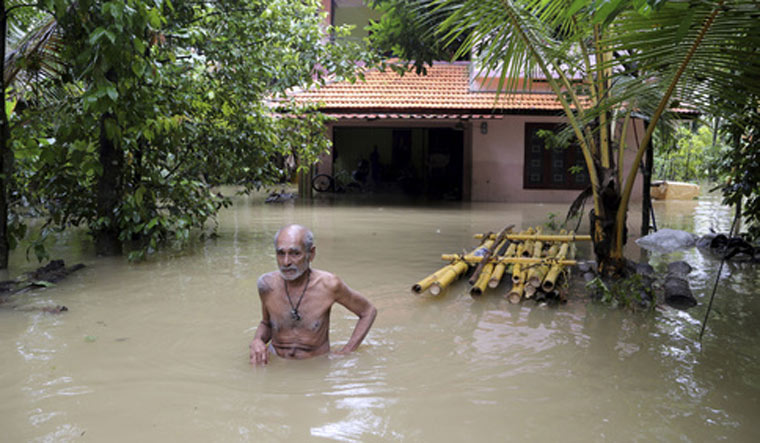As flood waters start to recede, and Kerala begins to count its losses, health experts warn of a looming health crisis.
According to the Union ministry of health and family welfare, no outbreak of communicable disease has been reported from the state yet. However, the environment will soon be conducive for “epidemic-prone diseases”. “The state has been given instructions to switch to daily surveillance and monitoring for epidemic-prone diseases for detecting early warning signs of an outbreak,” according to a statement from the health ministry.
With the waters receding, Kerala may be staring at a "second disaster", said Althaf Ali, associate professor, community medicine, government medical college, Thiruvananthapuram. Fears of outbreak of diarrhoeal diseases such as cholera, typhoid, and leptospirosis (rare bacterial infection)—a zoonotic disease that spreads through contaminated water—are likely to result in more casualties than those that have been attributed directly to the floods, Ali added.
"Already, in the past few years, the state has reported a relatively high number of cases of leptospirosis. Now, with people coming in contact with contaminated water everywhere, and sanitation taking a hit, the number of cases are bound to go up. It's hard to say who will get it, and who will not, and how many will be affected. So, we are recommending doxycycline tablets for everyone to prevent them from getting this disease," said Ali.
Leptospirosis is also an “occupational hazard” for workers who are tasked with the cleaning of canals and drainage, and are obviously at a higher risk of contracting the disease. “The (doxycycline) antibiotic prescription is a blanket one, with the exception of women who are pregnant,” said Ali.
Also read
- TN girl performs Bharatanatyam for 3 hrs to raise funds for Wayanad landslides victims
- Wayanad landslides: Heroic rescue team braves night in forest with victim's corpse
- IMD rain alert: Gujarat, Madhya Pradesh, Kerala among states named in IMD's weather warning for August 5-10; read details here
- Heavy rain lashes parts of India; bridge collapses in Jaharkhand; death toll rises in Wayanad, HP
- IN PICS | Wayanad landslide: 10 Chooralmala, Mundakkai images that capture the magnitude of Kerala disaster
To protect themselves from water-borne illnesses, people need to purify drinking water by either boiling it for 20 minutes, or treating it with chlorine tablets. Though a minute or two is good enough to kill certain microbes, boiling for 20 minutes would ensure that bacterial spores and other parasites would be destroyed too, said Ali.
“We are gearing up for a health crisis. Leptospirosis is a real danger right now. There are also fears of an outbreak of a disease such as chicken pox. The situation at relief camps is such that people with chicken pox can not be isolated from the rest. In such a situation, it is highly likely that it will be spread,” said Prem Nair, medical director, Amrita Hospital Kochi.
Those in the camps are also affected because of missed medications, said Nair. “We can only hope that people in the interiors get basic medicines such as insulin, and drugs for cardiac ailments since that is crucial for them. In the relief camps, there is access to medication for diabetes and cardiac issues,” said Nair.
Doctors such as Nair say they are also expecting cases of post-traumatic stress disorder to follow in the next few months.
Experts also advise that people entering their homes need to be careful, given that the structures have been under water for a few days and may be unstable. Caution needs to be taken to check for gas leaks, damaged electricity wires, snakes that may be hiding under the furniture, and kitchen and personal hygiene must be maintained, said Nair. Those with high fever need to be taken to the doctor, immediately.
“It will be a herculean task to prevent the spread of diseases. The state health departments is doing what it can. Better co-ordination between the local self governments and different state agencies is required to overcome the impending public health crisis,” said Ali.
The Centre would also be deploying teams for rapid health assessment to take appropriate public health measures to prevent and control outbreak of epidemic prone diseases, said J.P. Nadda, Union health minister. “Considering the additional burden of disease in the aftermath of the floods, quick response medical teams will also be sent to Kerala to provide emergency medical care. Support under the National Health Mission will be provided to make the damaged primary health care infrastructure functional,” said Nadda.


